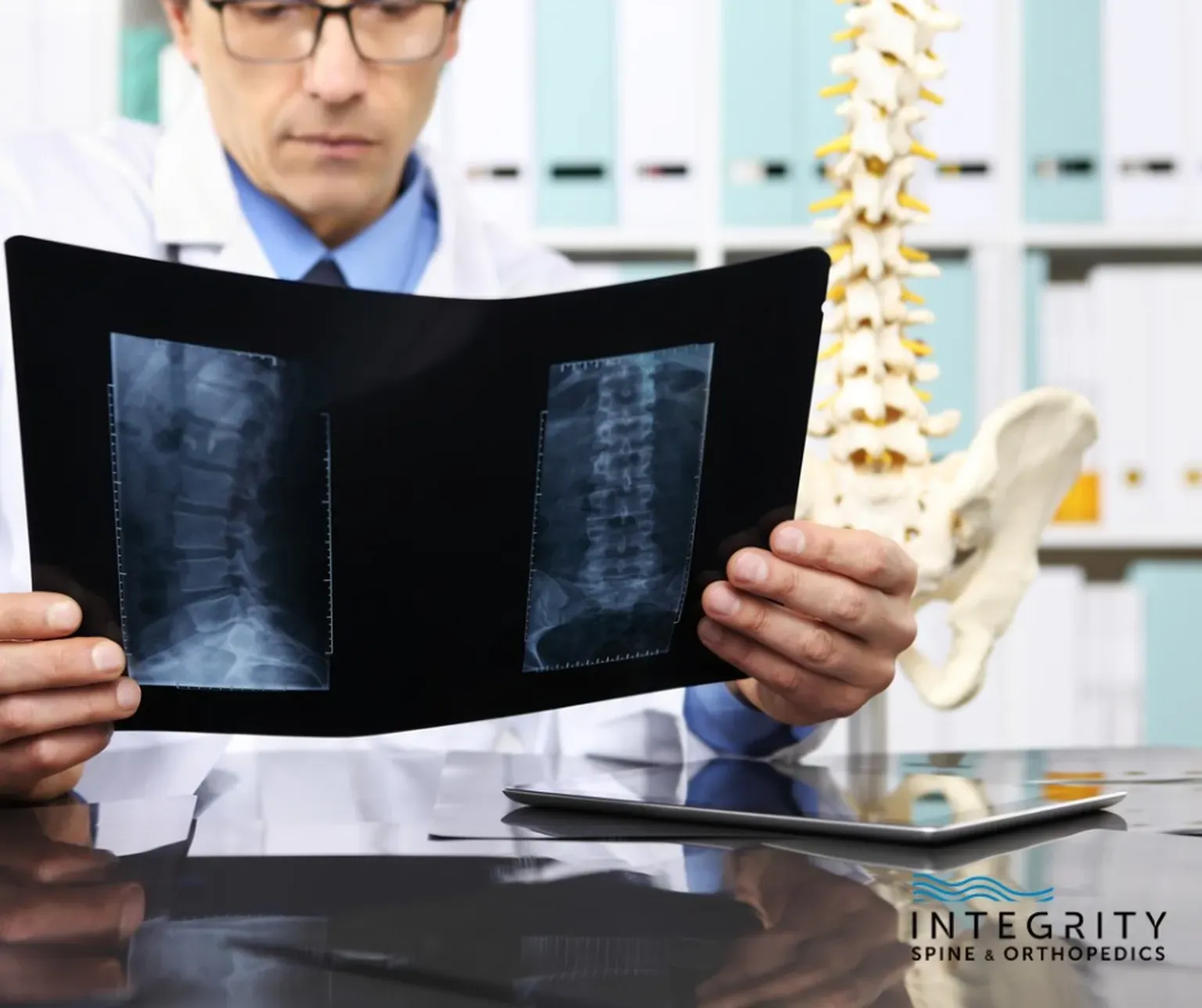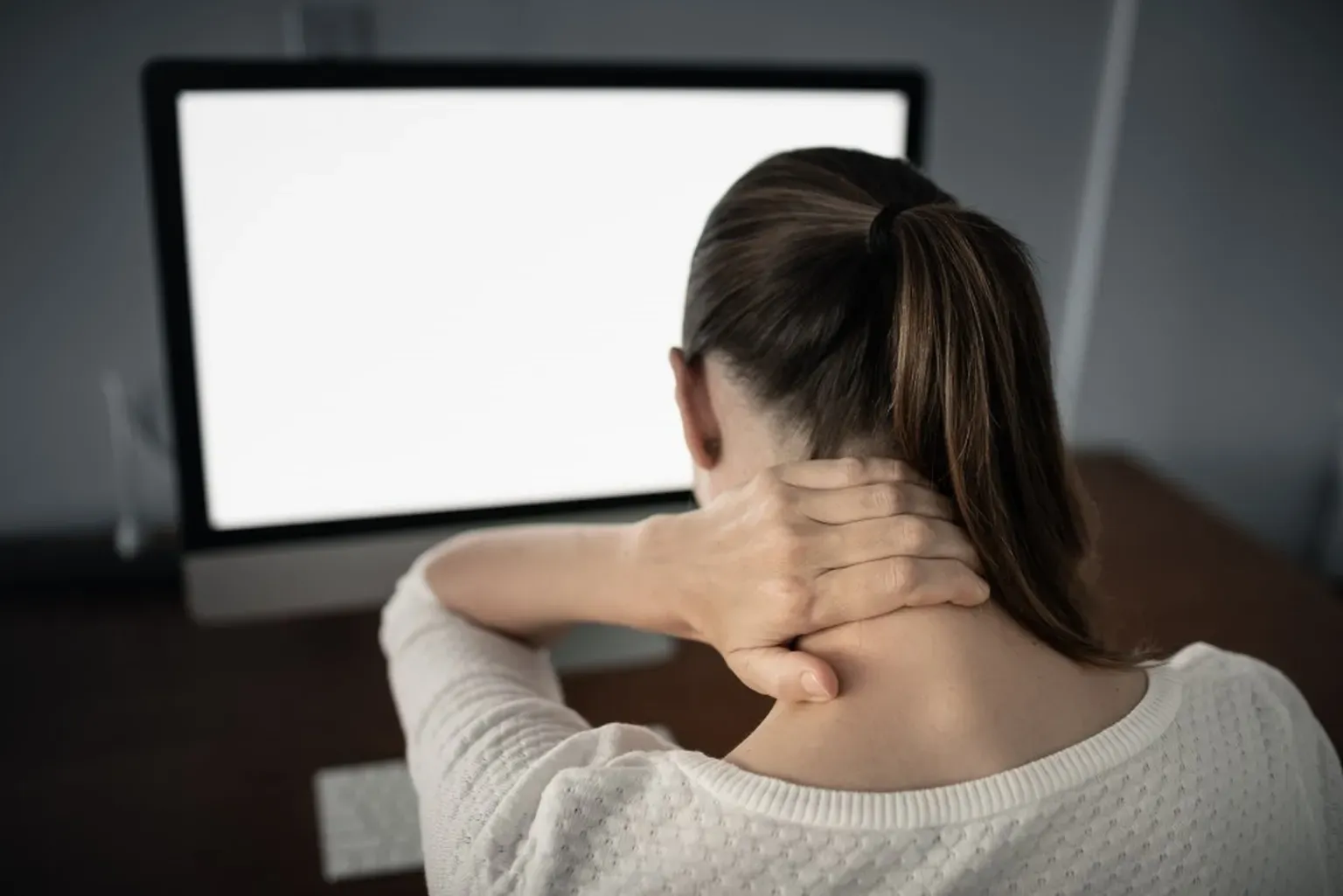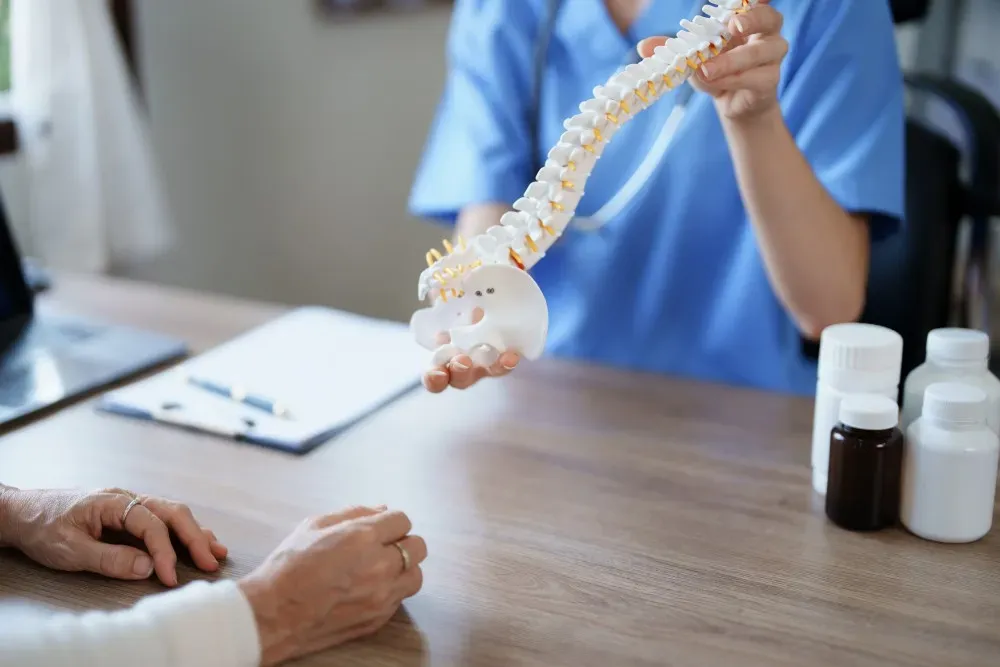Neurosurgery & Orthopedic Surgeons in Jacksonville

3 Signs You May Have a Slipped Disc
Spinal discs are one of the most important structures in the spine. They sit between the vertebrae, where they provide cushioning, support and shock absorption to the bones of the spine.
Spinal discs are one of the most important structures in the spine. They sit between the vertebrae, where they provide cushioning, support and shock absorption to the bones of the spine. Strong, flexible discs enable the spine to move fluidly and flexibly when we lift, twist or bend. As we age, natural wear and tear from weight bearing and daily activities causes the spinal discs to become stiffer, less flexible and less able to provide adequate support and cushioning. When disc degeneration occurs, the discs are more prone to injury or damage. A slipped disc in the back or neck is a common spine injury.
A slipped disc goes by many other names: a herniated disc, bulging disc, protruding disc or ruptured disc. Disc herniation occurs when degenerative changes cause the tough, fibrous outer shell of a disc to tear or break, which releases the disc’s inner fluid into the spinal canal. While a slipped disc can occur anywhere along the spine, it most commonly develops in the lumbar or cervical spine.
Many people experience disc herniation with no pain or symptoms. However, a slipped disc can also cause significant pain, weakness and difficulty walking or standing. Sometimes, slipped disc symptoms can be similar to other back and spine conditions. Below, we’ve identified 3 signs that may indicate your pain is coming from a slipped disc.
1. ARM OR LEG PAIN, NUMBNESS OR WEAKNESS
Many people believe that back or neck pain is the primary symptom of a herniated disc. And while it’s true that a slipped disc in the lumbar or cervical spine may cause low back or neck pain, a more telling sign of disc herniation is pain and symptoms that extend to the arms or legs.
Sciatica is one of the most common symptoms of a slipped disc in the back. When the inner material from a damaged disc leaks out into the spinal canal, it may irritate or compress nearby nerves. When the disc fluid compresses the sciatic nerve, it causes one-sided pain, weakness, numbness and tingling that travels from the low back to the buttock, thigh and calf. Sciatica may feel like a constant deep ache or a sharp and burning pain that comes on suddenly.
A slipped disc in the neck can also pinch or irritate nearby spinal nerves. Nerve compression in the cervical spine causes one-sided pain, weakness, numbness and tingling that starts in the neck and travels down the shoulder, arm and hand.
2. PAIN DURING ACTIVITIES
The pain from a bulging disc often worsens or comes on suddenly when you make certain movements. Pain that comes on suddenly with movement usually feels sharp, stabbing or electric. Trigger movements or body positions can include:
- Coughing or sneezing
- Prolonged sitting, standing or walking
- Bending or hunching forward
Slipped disc pain starts or worsens with activity because movements such as the ones listed above place more stress and pressure on the spine and spinal nerves.
3. PAIN RELIEF WITH REST
If you have a slipped disc, you may experience pain relief with rest. Lying flat on your back with bent, supported knees or sitting in a reclining chair relieves downward pressure on the spine.
TREATMENT OPTIONS
Seek medical advice and care if you’re experiencing any of the symptoms listed above. While many slipped discs heal naturally within 6 weeks without surgical intervention, your doctor can help design a treatment plan to ensure you make a full and speedy recovery. If you’re experiencing mild to moderate pain and symptoms, your doctor will likely begin by prescribing the following:
- Rest. Try to avoid high-impact activities that cause your pain to flare up. However, be mindful of resting too much — prolonged immobilization can end up causing more pain, stiffness and inflammation. Stay active with low-impact activities (like swimming or yoga) as much as you can tolerate without experiencing too much pain.
- Ice and heat. Alternate ice and heat packs several times a day to soothe pain, swelling, inflammation and stiffness.
- Medications. For mild to moderate pain, an over-the-counter pain medication like acetaminophen or ibuprofen can be effective. If you’re having more significant pain, your doctor may prescribe a stronger painkiller, muscle relaxants or nerve pain medications.
- Cortisone injection. A corticosteroid injection can temporarily reduce inflammation and irritation around compressed nerves in the spine. While the effects of an injection are short-term, it gives your body time to start the healing process and gives you a break from pain and discomfort.
- Physical therapy. Your doctor may recommend a course of physical therapy to help you strengthen your back muscles and joints. A therapist can also show you stretches to relieve pressure in the spine and reduce your pain.
Slipped discs that are still causing significant pain and symptoms after 6 weeks, or that have shifted far out of place, may require surgery. The orthopedic surgeons at Integrity Spine and Orthopedics can perform a minimally invasive spine procedure to remove part or all of a damaged disc and decompress pinched nerves. Minimally invasive surgeries require smaller incisions, cause less muscle and tissue damage and have a shorter recovery period than traditional spine surgeries. We perform the majority of our surgeries as outpatient procedures so you can go home the same day as surgery. Many of our patients return to their normal activities within a few weeks following their procedure.
INTEGRITY SPINE AND ORTHOPEDICS TREATS SPINE AND JOINT CONDITIONS
Integrity Spine and Orthopedics offers several services to treat a range of spine and joint conditions. We provide exceptional orthopedic care, pain management and minimally invasive spinal procedures. Our team of orthopedic surgeons is board certified and fellowship trained in outpatient, minimally invasive spine surgeries.
If you’re suffering from pain, reduced mobility and a decrease in your quality of life, call us today to schedule an appointment or request a free MRI review.




